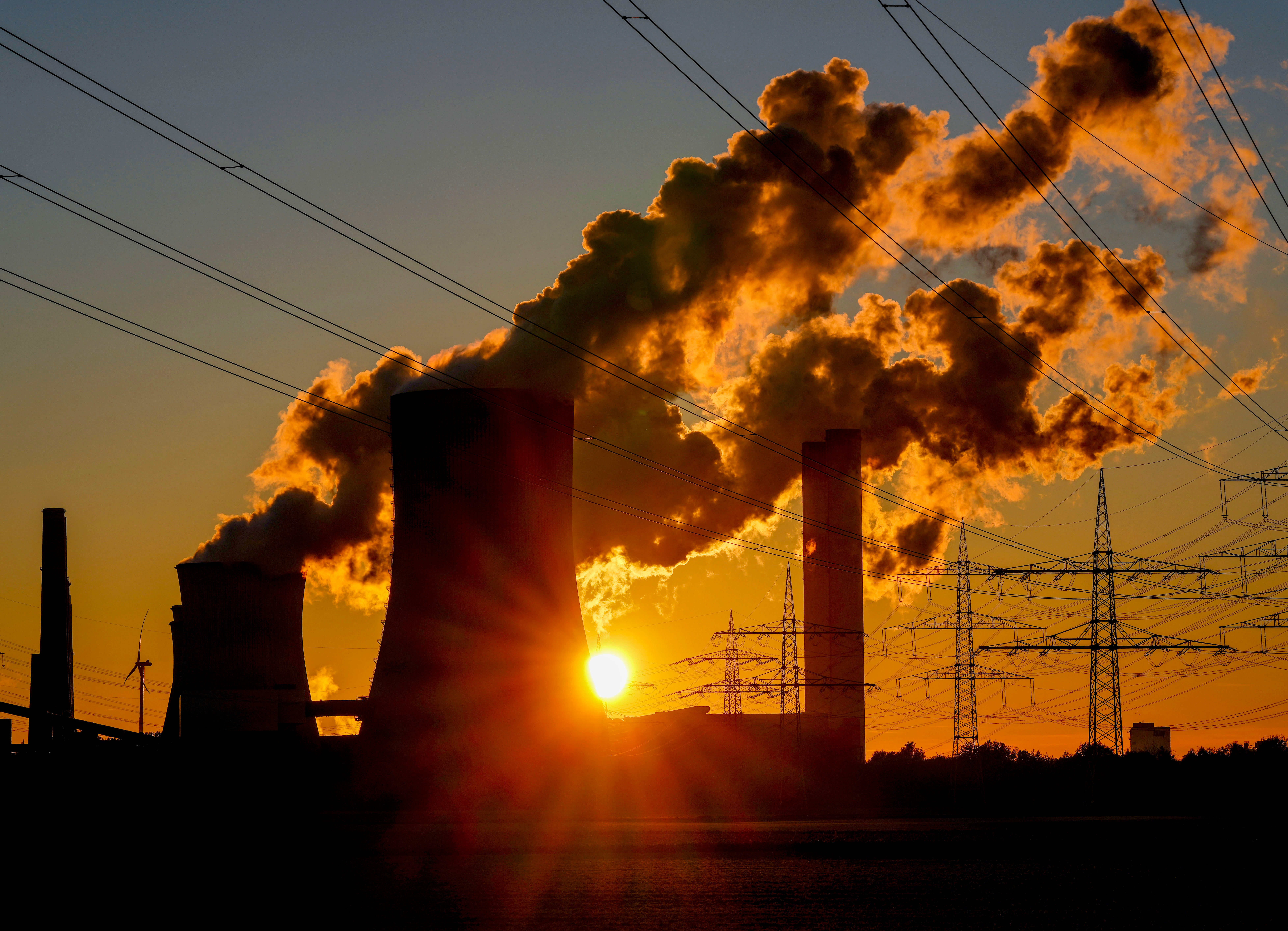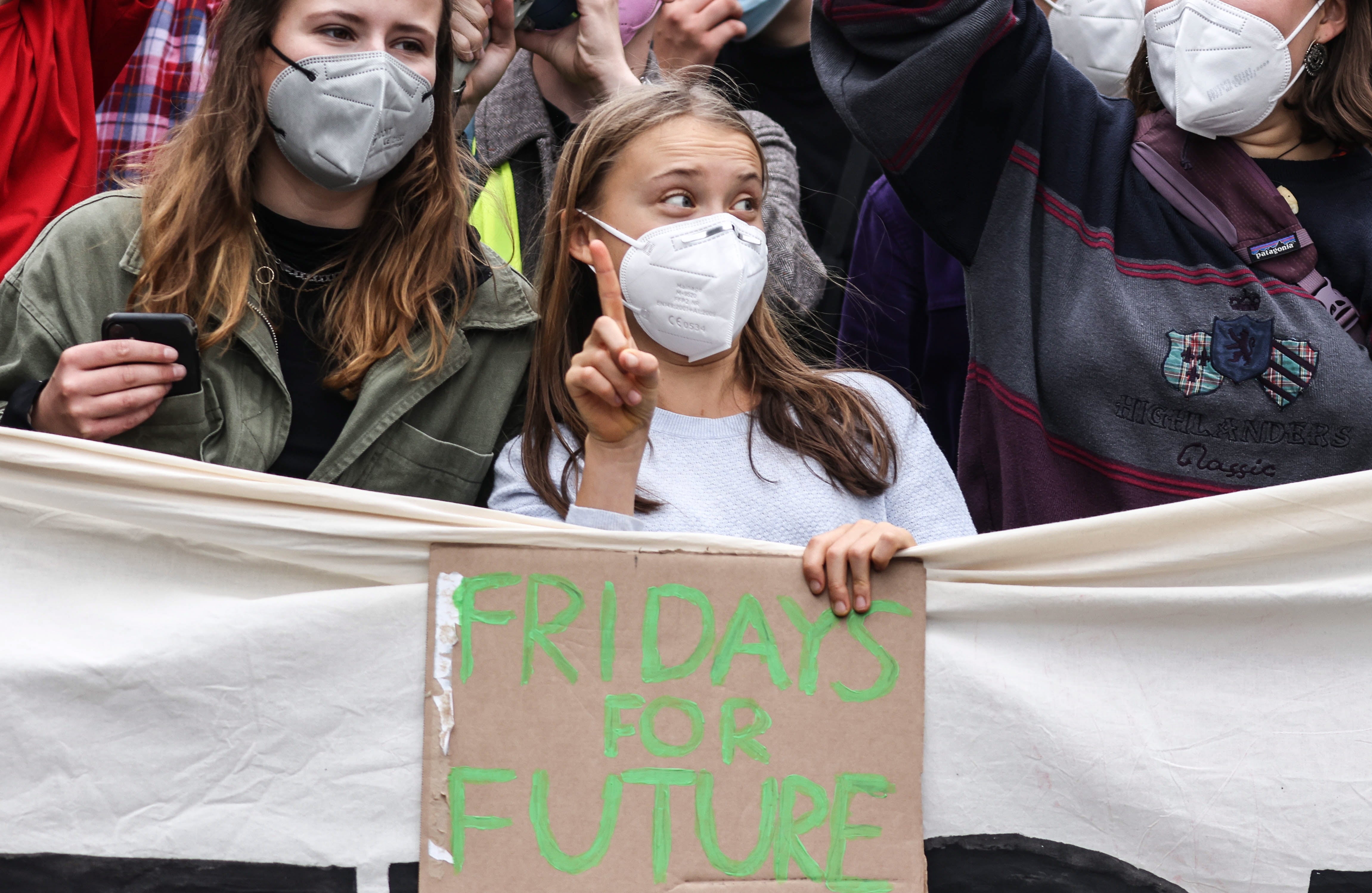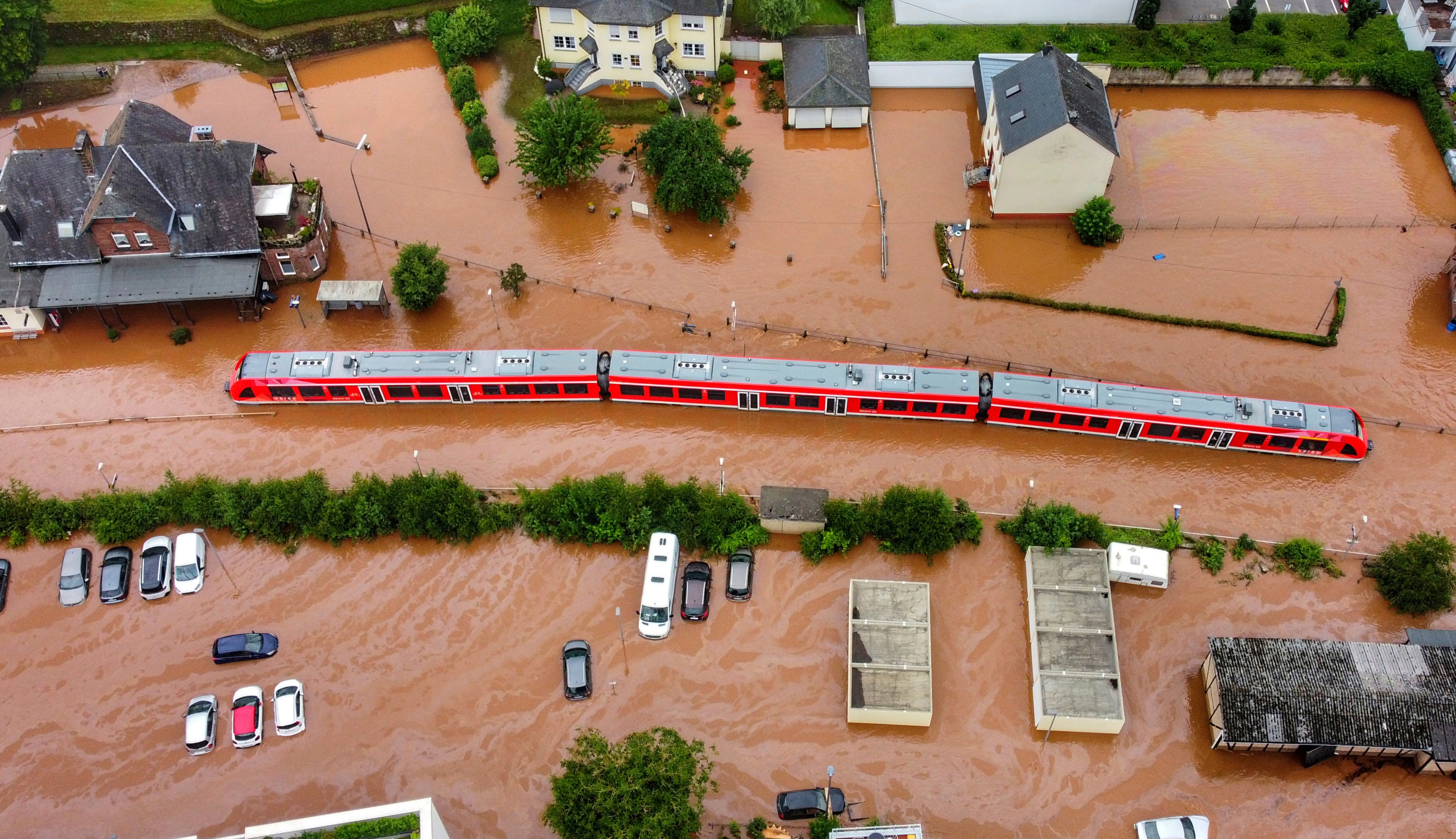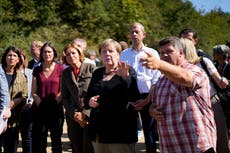Climate leader or hypocrite? Germany’s green record under the microscope as Cop26 approaches
Germany’s leading activist Luisa Neubauer tells Erik Kirschbaum that there is an ‘enormous gap between who we are and who we think we are’ when it comes to the country’s climate record

Germany likes to fancy itself as a global leader in the fight against climate change, and seldom hesitates to wag a finger at other leading industrial countries – such as China and the United States – for being laggards when it comes to making meaningful cuts in CO2 emissions.
But the reality is that Germany’s own efforts to stop the climate crisis fail to match the soaring rhetoric, and, more importantly, fall short of what scientists say is needed to avert the worst – even though some relatively easy changes, such as introducing a speed limit on its high-speed motorways, could have an immediate impact on reducing the country’s emissions.
Germany, the world’s fourth-largest economy, is also the world’s sixth-largest emitter of greenhouse gases.
That disconnect between the lofty talk about climate leadership and the reality in Germany is in many ways a microcosm of the dissonance around the world ahead of the United Nations Cop26 summit in Glasgow next week, where global leaders will attempt to thrash out more meaningful action to try to slow a perilous rise in global temperatures.
“There’s an enormous gap between who we are and who we think we are,” says Luisa Neubauer, 25, a leading climate activist in Germany, in an interview with The Independent.
“Germany likes to think of itself as a ‘climate champion’ in fighting the crisis, but that belief is actually preventing us from doing the job. We’re failing by far to stick to our promises. We’re talking about climate change, yet at the same time expanding our national infrastructure for importing more natural gas. Germany is everything but a role model when it comes to fighting climate change. We need to face up to that reality.”
An export-driven economy that is by far the largest in Europe, Germany is behind only China, the United States, India, Russia and Japan when it comes to CO2 emissions. One of the first countries to industrialise, Germany is the fourth-largest CO2 emitter in history – having produced more than 92 billion metric tonnes of CO2 emissions since 1750.
“We are well aware of what needs to be done, we know about the problem, we discuss it but it doesn’t make a difference,” says Neubauer, who works closely with Swedish climate activist Greta Thunberg.
“We’re one of the world’s biggest polluters and are betraying the younger generations. We carry a huge responsibility in Germany. Who are we to point a finger at other countries? We are far away from fulfilling our own promises. The reality is glorified here because we think we’re so green. If we can’t get what’s needed done, how can we expect other countries to get things done?”
Germany has reduced its greenhouse gas emissions by 40 per cent since 1990, helped considerably by the unintentional implosion of industry as the heavily polluting factories in Communist East Germany closed in the wake of reunification. Germany just barely managed to meet its 2020 emission targets, rather surprisingly and at the last minute, thanks to the fact that the Covid-19 pandemic throttled its powerhouse economy and cut emissions sharply in 2020.
But Germany is already projected to miss its 2021 targets due to the economic rebound and a 6 per cent rise in emissions this year, according to an estimate by the Agora Energiewende think tank in Berlin.

The absence of any speed limit on the country’s Autobahn is just one telling illustration of the disconnect between Germany’s lofty image of itself as a leader in fighting climate change and the reality. Powerful cars built by companies such as Porsche, Mercedes, BMW, Audi and Volkswagen regularly zip around at speeds of up to 130 mph or more.
The mighty car-industry lobby has prevented successive governments from seriously considering changing the law on speed limits, because it is understood that the image of high-speed German cars is vital to helping carmakers sell their vehicles in foreign markets – and to protecting millions of jobs at home in Germany.
An estimated five per cent of Germany’s transportation emissions could be reduced overnight if there were a speed limit of 80 mph. But the unlimited upper speed on the motorways is a sacred cow in Germany, where the country’s Conservative Party once even compared speed limits to communism with a campaign slogan: “Freie Fahrt für frei Bürger” (free travel speeds for free citizens).
“The speed limit is just the tip of the iceberg,” says Neubauer. “We need to be talking about a complete transformation of entire industrial sectors, but people are caught up with opposing a speed limit because they think it would limit their freedom. Too many people in Germany mix up habits with freedom. I realise people want to keep their habits. But our habits are creating terror for the rights of other people. Our habits are destroying the world and will be taking away a lot of people’s freedoms.”
With her straight talk on climate, Neubauer has become a popular talk-show guest in Germany. Together with Sweden’s Thunberg, she has become the face of the rapidly growing Fridays for Future movement in Germany – but also a lightning rod for the anger of those who blame climate consciousness for higher fuel prices.
In June 2021, the 27 European Union countries set legally binding targets to reduce the EU’s net emissions by 55 per cent by 2030, compared to the 1990 level. The EU’s climate law also demands that member countries completely eliminate emissions by 2050.
We’re one of the world’s biggest polluters and are betraying the younger generations. We carry a huge responsibility in Germany. Who are we to point a finger at other countries?
Germany has pledged to cut its emissions even further than the rest of the EU – by 65 per cent by 2030. But, despite that pledge, Germany is already going in the wrong direction, as carbon emissions in 2021 are actually expected to increase by 47 million tonnes to about 800 million tonnes, according to the Agora Energiewende.
Even though the Green Party in Germany finished a strong third in the September election, and will likely be the second-biggest party in a three-party ruling coalition, the pro-environment party has already given up on a speed limit in the face of strong opposition.
“Young people are scared about their future and demanding change,” says Neubauer, referring to the 22 per cent of the vote that the Greens got from voters between 18 and 29. “But just because young people are especially aware doesn’t mean that politicians are acting in the interests of the younger generations, even though we’re the ones who are going to have to face the consequences of their inaction.”
Record heatwaves across Germany and many parts of Europe in recent years, along with devastating floods that killed hundreds this summer – which some scientists say may have been exacerbated by rising global temperatures – have sharpened awareness of the problem.

“The good news is that more and more people are now understanding the crisis we’re in,” says Neubauer. “There are more stories about the climate crisis in the news than ever before. Climate consciousness is higher than ever before. Just take a look at societies everywhere, it’s amazing. I never would have believed that we could change so much in such a short time.”
Neubauer says she expects young voters and young activists to continue raising the pressure on policymakers in order to make sweeping change possible quickly. She bristles at the suggestion that the German government and others have simply been asleep at the wheel as climate change worsened over the last few decades.
“I think the notion that governments are asleep is a myth,” she says. “They’re all wide awake and realise what’s happening. So far they’ve decided to work against protecting the future for future generations. They have put the interests of a few over the wellbeing of the future generations. It’s been a very conscious decision. They’re adults and we should treat them as adults. Kids can understand that we’re in a climate disaster.”
Join our commenting forum
Join thought-provoking conversations, follow other Independent readers and see their replies
Comments


Bookmark popover
Removed from bookmarks